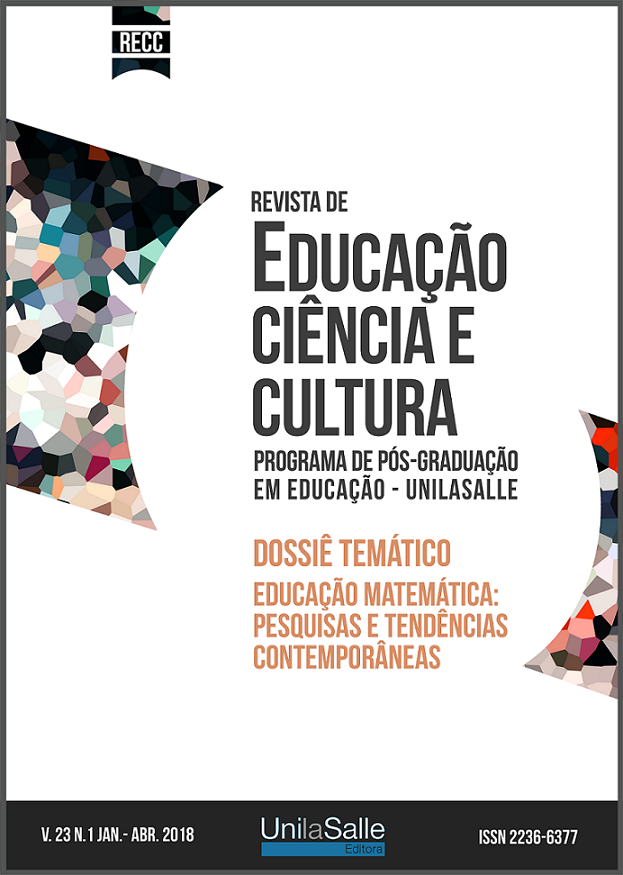The school mathematical activity as an introduction of paradigms in language
DOI:
https://doi.org/10.18316/recc.v23i1.4192Keywords:
Paradigm, Mathematics Teaching, Mathematical Language, Wittgenstein.Abstract
From a Wittgensteinian perspective, this article assumes that the use we make of our mathematical statements is of a different nature from the hypotheses of the natural sciences, which have a predominantly referential use. While these have an explanatory and descriptive purpose, the objects of mathematics and their relations expressed through axioms and theorems play a normative role. In contrast to a referential conception of mathematical knowledge, my goal is to show the importance of this distinction for the mathematical activity in the school context, from the most elementary level of introduction of paradigms in preparatory language games, to the most complex level of their demonstrations, which in turn produce new paradigms. I conclude that certain interpretations of mathematical statements coming from a referential conception of mathematical language can lead to dogmatic images, causing several misunderstandings in their pedagogical practices, particularly when they are anchored in mentalist or empiricist theories of meaning.
Downloads
Published
Issue
Section
License
Authors must submit their manuscripts to be published in this journal agree with the following terms:Authors maintain the copy rights and concede to the journal the right of first publication, with the paper simultaneously licensed under the License Creative Commons attribution that permits the sharing of the paper with recognition of authorship and initial publication in this journal.
Since the articles are presented in this journal of public access, they are of free use, with their own attributions for educational and non-commercial purposes.
The Periodic Journal of Education, Science and Culture in http://www.revistas.unilasalle.edu.br/index.php/Educacao was licensed with a Creative Commons - Attribution - Noncommercial 3.0 Not Adapted.


